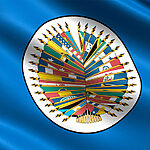A Practical Guide to ABCC Claims
The Advisory Board on Compensation Claims (ABCC) was established by the UN Secretary-General to consider claims for compensation arising from service-incurred death, injury or illness and to make recommendations thereon to the Secretary-General. The ABCC is a joint board made up of three representatives of the staff (appointed by the Secretary-General on the recommendation of staff representative bodies) and three representatives of the Administration (appointed by the Secretary General).
The ABCC claims process often feels long, complex and technical, so this blog in intended to provide a simple and practical summary on how to prepare an ABCC claim. The information drawn from Appendix D to the Staff Regulations and Rules and the Manager’s Guide to Appendix D and the ABCC: Claims for Service-Incurred Injury, Illness or Death.
What claims can be made to the ABCC?
“Service-related” death, injury or illness may occur in the following circumstances:
- Whilst engaged in an activity and at a place required for the performance of official duties;
- During official travel;
- Commuting accidents that occur while the claimant is travelling to or from work, provided the claimant was taking the most direct route and using a reasonable means of transportation; or
- Due to presence in an area involving special hazards whilst on assignment by the UN.
This will include claims involving death, injury or illness due to COVID-19, provided that the subject of the claim meets the definition of a service-incurred incident. Such claims will be dealt with in accordance with the standard provisions of Appendix D.
Claims shall not be compensable if expressly excluded under the conditions established by the Secretary-General or where the death, injury or illness occurs as a result of, but not limited to the following:
- Misconduct, recklessness, gross negligence or wilful intent;
- Disregard of security requirements, failure to use safety devices or medical prophylaxis;
- Physical confrontation or violence;
- Pre-existing medical conditions; or
- Telecommuting.
Who is covered?
The ABCC provides cover to:
- All staff members of the UN Common System;
- All staff members of the UNDP, UNFPA, UNICEF, UNOPS and UNHCR; and
- Consultants and contractors whose contracts specifically include Appendix D.
The coverage does not include interns, daily workers and UN volunteers.
What kinds of compensation are available?
| Service-incurred injury or illness | Service-incurred death | Not covered |
| Payment of medical expensesLump sum payments for permanent injury, loss of function or impairmentTotal disability benefitAdditional sick leave entitlements. | Compensation for surviving spouses and dependent children in cases of deathCertain funeral expenses Travel and repatriation costs for an eligible family member to attend the funeral. | Legal fees and related expensesGeneral transportation costNon-medical expensesConsequential damagesClaims related to pain and suffering |
What documents should you include with your claim?
All claims submitted to the ABCC must be accompanied by the relevant documentation in one of the official working languages of the UN: English or French. Medical information is treated as highly confidential and will only be shared with the ABCC Secretariat.
| Service-incurred injury or illness | Reimbursement of medical expenses |
| The claimant must submit the following information from their doctor in writing: – A description of the injury or illness – A description of the relation of the injury or illness to the incident – A diagnosis – A prognosis | The claimant must submit: – A completed medical expense form – All related medical bills – Proof of payment of such bills |
Where do you send your claim?
Claims are sent to the following focal points, who will then forward the claim to the ABCC Secretary:
- Claims arising during peacekeeping missions should be submitted to the Administrative Office. The claim will then be forwarded on to the Field Personnel Operations Service of the Department of Field Support.
- Claims arising from agencies or funds should be submitted through the respective administrative or human resources focal points.
- Claims arising at headquarters duty stations should be submitted through the duty station focal point, Administrative Officer or Executive Office.
Claims Process
- As soon as possible after the incident, claimants should submit the following details to the relevant human resources, executive or administrative officer:
- The staff member and claimant’s names, addresses and staff identification;
- The date of death or of the onset or diagnosis of an injury or illness; and
- A description of the incident, including its date, time and location.
- Claimants should submit a signed ABCC claim form and any supporting documentation to the relevant focal point within one year of the date of injury, illness or death. In certain circumstances, the Medical Services Division (MSD) may make exceptions to this deadline on the grounds of incapacity.
- The Secretariat and MSD will review the claim. At this stage, the Secretariat can request further documents or clarification from the claimant, and the MSD will provide guidance on such things as the reasonable costs for treatment of the injury or illness.
- The claim will then be considered by the ABCC, who drafts recommendations. The recommendations must be approved by the Controller, who may approve or deny compensation claims on behalf of the Secretary-General.
- Once approved, a signed decision of the Secretary-General will be forwarded to the claimant and their Administrative/Executive Office for the appropriate action.
Reconsideration, Review and Appeal
Appeals from ABCC decisions can be made to the Management Evaluation Unit (MEU). A claim may be reopened when one or more of the following criteria are met:
- The discovery of new material evidence, such as new medical evidence or evidence establishing that the death, injury or illness was service-incurred;
- A worsening or improvement in the condition of the staff member which may entitle them to additional compensation or warrant the reduction or elimination of compensation; or
- A material mistake was made by the UN in the processing of a claim that had an impact on its disposition.
However, this does not extend to medical determinations made by the MSD. In relation to medical determinations, claimants may request review by a medical board pursuant to the relevant organisational rules. If unsuccessful, the claimant will be responsible for the costs of this review.
Judicial appeal of ABCC decisions may also be made to the UN Dispute Tribunal (UNDT) as the “first instance tribunal” of the UN’s internal justice system. Complainants may wish to apply to challenge an administrative decision made by the ABCC if they believe that it violates their rights as a staff member due to non-compliance with the terms of their appointment or contract of employment.
Relationship to Other UN Benefits
ABCC claimants may also be covered under the Malicious Acts Insurance Policy (MAIP), a commercial insurance policy which offers compensation for injuries, illness or death caused by war or a malicious act at a designated hazardous duty station. This compensation is in addition to the compensation available under Appendix D. Claims under the MAIP should be submitted separately to the ABCC process.
Whether or not they are service-incurred, claims relating to injury or illness resulting in total disability may also be submitted to the UN Joint Staff Pension Fund (UNJSPF). If the claim is service-incurred, a claim may also be made under Appendix D. Compensation under Appendix D will act as a supplement to any benefits awarded under the UNJSPF.
Relationship to Non-UN Benefits
Claimants should note that any compensation or benefits paid to them under governmental, institutional, industrial or other workers’ compensation schemes shall be deducted from any amounts payable to them by the ABCC. If claimants have already been compensated under another scheme or been reimbursed by private health or medical insurance, they cannot ‘double dip’ and seek ABCC compensation as well. The onus is on the claimant to inform the ABCC without delay of any compensation received from other sources.
All available resources in relation to ABCC claims may be accessed online.
A final observation
It is important to remember that psychological injuries and illnesses can be claimed through the Appendix D process as well. However, despite the increasing awareness of mental health and its importance in our society, it is rather difficult to submit a successful ABCC claim which establishes a clear causal nexus between the mental condition and the service-related nature of that condition.
Photo credit: Embroker










